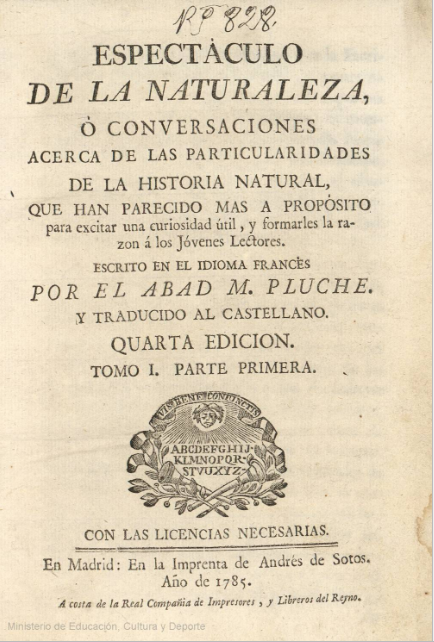
Libraries
Libraries
Espectacle of Nature, by Noël Antoine Abad de Pluche (1732)
Abbot Pluche was a French ecclesiastic of the eighteenth century, especially known for his treatise on natural history El espectáculo de la naturaleza, to which Cardenas refers twice. This voluminous treatise, originally edited in eight volumes of nine volumes, was thought as an informative work rather than as a scientific treatise, so it is full of divergent arguments, referential cases and author’s views, presented as logical and inevitable deductions of nature.
Cardenas does not follow Abbot’s theory, but he uses this last one’s work to dismiss obsolete visions of flying. In his dissertation, Pluche defends the idea of the impossibility of flying since man has arms instead of wings, thesis that Cárdenas rejects without any doubt and confronts with his own theory. He does this by disapproving the author’s objections in the middle of his book. He dares to say that if he contradicts Abbot Pluche’s thought, this would be worth the sentence of life imprisonment by the Inquisition. Nevertheless this does not retain him in his argumentation, he reaffirms himself in his thesis that he does not contradict the Abbot, since this one does not approve human flight, because he departs from a point of view different from his.
On the other hand Cárdenas mentions in the foreword to the Abbot Pluche’s book, the legend of the creator of the Lyon clock that says that had his eyes were torn out. This story actually corresponds to the inventor of the astronomical clock of Prague, whose eyes were plucked, they say, so he was unable to duplicate his innovation elsewhere. In any case, both cities have an astronomical clock dating from the 14th and 15th century, so the confusion is reasonable. However this reference cannot be verified in the writings of the Abbot Pluche, nor in reference to the clock of Lyon, nor to the one of Prague.

